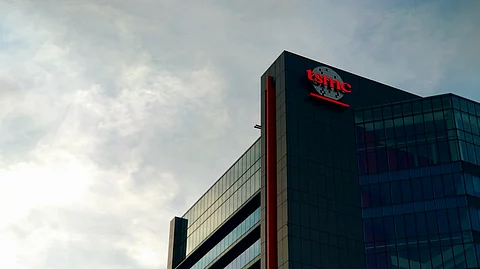

Taiwan has added a number of Chinese companies to its export control list in a move that closely mirrors longstanding U.S. restrictions on Beijing’s access to critical technologies.
Over the weekend, Taiwan’s Ministry of Economic Affairs announced that the Commerce Ministry’s Trade Administration had placed Chinese tech giants Huawei and Semiconductor Manufacturing International Corporation (SMIC) on its Strategic High-Tech Commodities Entity List. The list is part of a broader review aimed at preventing arms proliferation and addressing other national security concerns, according to a statement published on the ministry’s website.
In addition to Huawei and SMIC, 601 other entities were included on the list. These include organizations and companies based in Russia, Iran, Myanmar, Pakistan, and Afghanistan—where the Taliban-led government is now in power—as well as numerous additional Chinese firms.
Placement on the list means that Taiwanese companies must now obtain special government approval before exporting products to the named entities. While specific products were not detailed in the announcement, the nature of the list—centered on strategic high-tech goods—suggests that the new controls apply to semiconductor technologies, artificial intelligence software, chip-making machinery, dual-use items, sensors, and display panels.
Taiwan, home to Taiwan Semiconductor Manufacturing Company (TSMC), the world’s leading chipmaker, plays a critical role in the global supply chain and is viewed as a strategic asset by the United States. In efforts to counter China’s growing technological capabilities, Washington has pushed to establish TSMC production facilities within U.S. territory, with a plant in Pheonix, Arizona being partially operational as of this month.
Taiwan’s new restrictions closely align with U.S. policy, particularly the blacklisting of Huawei and SMIC that began under the Trump administration in 2020. In November 2024, the United States further ordered TSMC to cease selling products to Chinese clients, underscoring its attempt to restrict China’s access to advanced semiconductor technologies.
The Taiwanese government’s latest decision comes amid broader U.S.-China tensions in the tech and national security sectors. While Washington recently reached an agreement to temporarily pause tariffs against Beijing, it continues to face challenges stemming from China’s dominance in the rare earth minerals market. Over the weekend, reports indicated that China has yet to ease its export restrictions on samarium—a critical mineral used in the F-35 fighter jet and other defense technologies. China currently controls 100% of the global samarium supply.